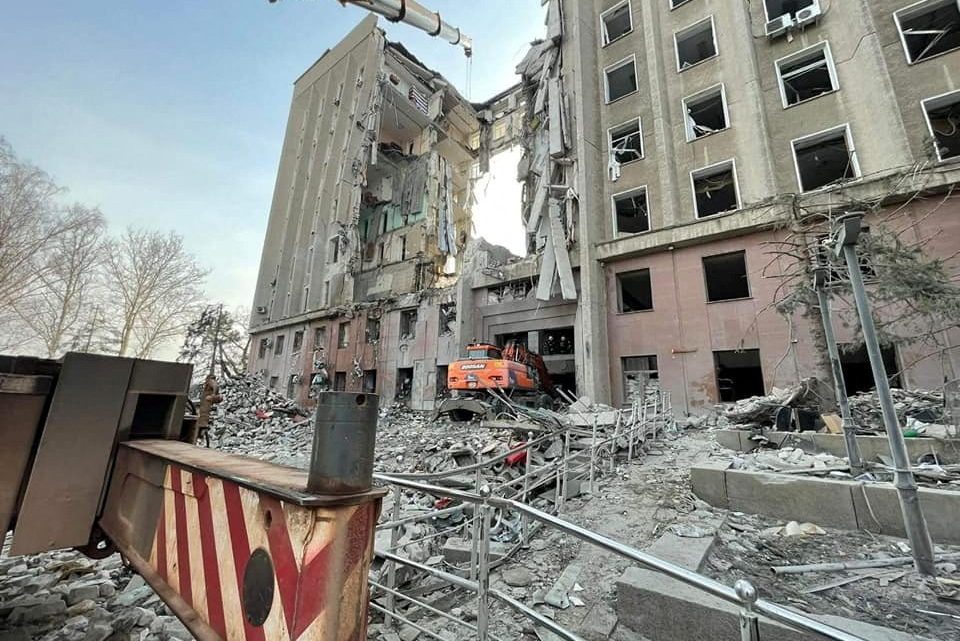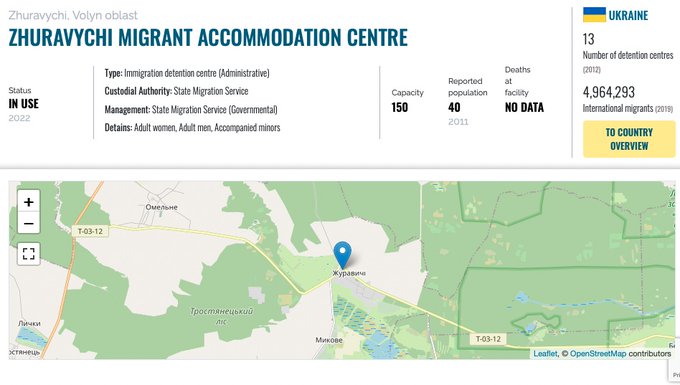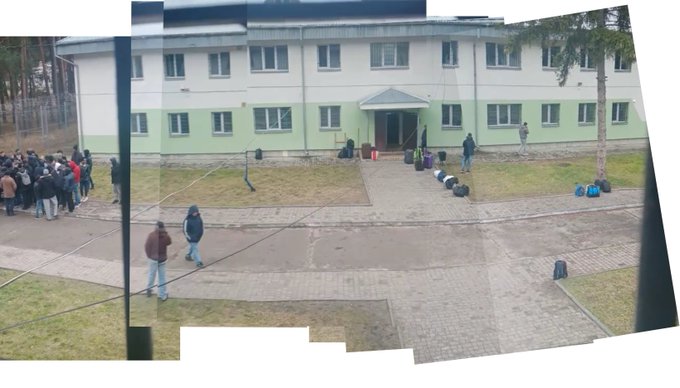
Ukraine: migrants held in detention centre despite bombing
By InfoMigrants – Published on: 05/04/2022
Dozens of migrants held in detention centres in Ukraine are unable to escape the war, Human Rights Watch said in a report released Monday. Many of these facilities are in the middle of a conflict zone, as the country tries to resist the Russian invasion and thousands of civilians have died in the fighting. The NGO is concerned for the safety of those detained and calls for their release.
Foreigners are still being held in Ukrainian detention centres despite the bombings. This is what Human Rights Watch reveals in a report made public on Monday 4 April. According to the NGO, dozens of people continue to be deprived of their movements while Ukraine suffers daily Russian strikes on its territory and thousands of civilians have died in the clashes.
“Migrants and asylum seekers are currently locked in the middle of a war zone and are understandably terrified,” Nadia Hardman, refugee and migrant rights researcher at Human Rights Watch, tells InfoMigrants.
While the centre in Chernihiv, near the Belarusian border, has been emptied of its occupants since the start of the Russian offensive on 24 February, the centres in Mykolayev, in the south of Ukraine, some 100 km from Odessa, and Zhuravychi, in the north of the country, some 40 km from Lutsk, are still functioning. Two regions affected by the conflict, where explosions have still been heard in recent weeks.
“We have contacted the Ukrainian authorities about this, but we haven’t received any response so far,” explains Nadia Hardman. Of course, we appreciate the difficult conditions that exist, but this does not justify the continued detention of migrants.
HRW staff have not been able to make contact with those held in the Mykolayev centre, “which is of great concern because this region is the scene of major military action,” insists Nadia Hardman.
Release in exchange for participation in the war effort
The NGO was able to talk to foreigners from Zhuravychi. At the time of the interviews conducted by HRW at the beginning of March, around a hundred exiles were imprisoned there, including Afghans, Algerians, Cameroonians, Ghanaians and Syrians. Some were able to negotiate their release, sometimes with the help of their embassies.
According to Lighthouse Reports, which is also investigating this case, there are still some 45 people on the Zhuravychi site, including women and a three-year-old child.
The migrants were placed in the centres after trying to cross the border into Poland illegally before the Russian invasion. They told HRW that their student visas had expired and that they had wanted to try their luck in another European country. The migrants were sentenced to between six and 18 months’ imprisonment, without access to a lawyer or the opportunity to lodge an asylum application in the country.
In order to be released, the guards offered the detainees to join the war effort, reports HRW. “They added that they would then all immediately obtain Ukrainian citizenship,” the report notes. No foreigner is said to have accepted this “offer”.
A former military barracks that has returned to its original function
The Zhuravychi facility is a former military barracks, converted into a detention centre in 2007 with EU funding. In the days following the Russian offensive, part of the site reverted to its original function: members of the Ukrainian army moved into the centre, HRW said, citing eyewitness accounts and verified video. The migrants were then rounded up and moved to another building in the complex to make room for the soldiers.
Zhuravychi is therefore a major target for the Russian army. Those held “can hear the sounds of artillery fire and explosions”, explains Nadia Hardman. And this, while, according to the Arab media Al-Jazeera, the site has no shelter to protect itself from the bombing. “The wife of a detainee released last week said that the guards ran into the street when the siren sounded,” the authors of the article, published on 4 April, wrote. The exiles were unable to leave their cells.


